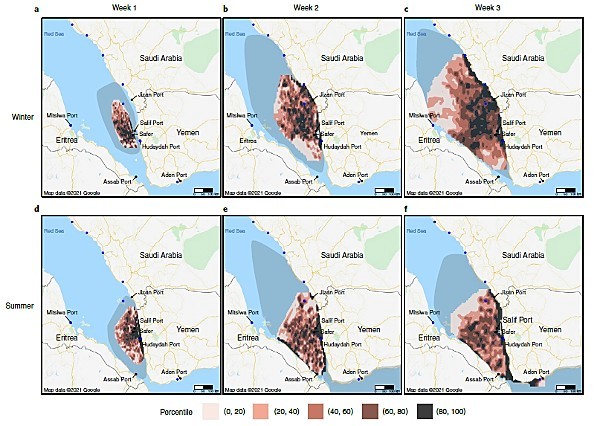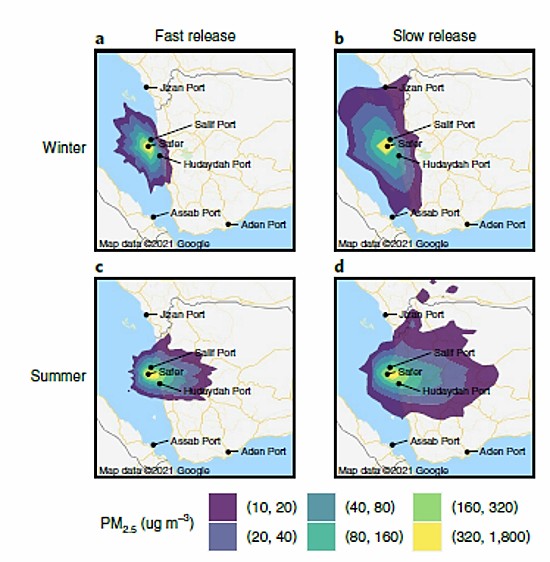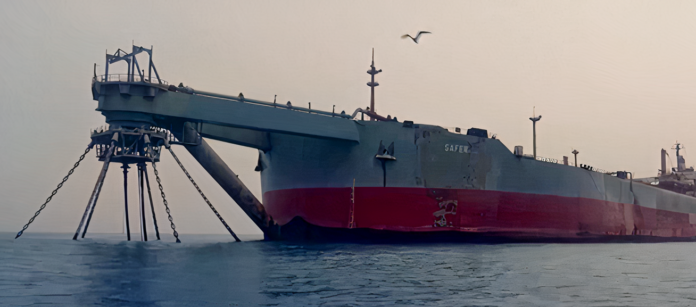In August of last year I posted a story about an oil tanker with 1.1 million barrels aboard that is sitting rusting away off Yemen’s coast. At the time of writing the United Nations was asking members to donate $80 million USD to implement a rescue plan that would offload the oil and tow the empty tanker to a shipyard for salvage.
The war Russia started in Ukraine in 2022 has caused a surge in operational costs with a new budget pegged at $129 million. Donor nations, private companies, and the public have contributed $95 million so far leaving a shortfall of $34 million. The UN has found a tanker to do the offloading of the contents of the FSO Safer. It can be ready to sail in the next month. So once again the UN is asking for contributions from members and the public to cover the balance of the operational costs. There is a current crowdfunder on the UN site.
YemenOnline on the weekend ran a story with the following headline: Yemen’s abandoned 1976-model super tanker carrying gallons of oil likely to sink or explode at any time. The article calls the FSO Safer an abandoned ship in danger of breaking apart. Off Yemen’s Red Sea coast, the fear is an oil spill will create an environmental disaster should there be a 1.1 million barrel spill. David Gressly of the UN states, “We don’t want the Red Sea to turn into the Black Sea…It’s a certainty, according to those who are familiar with the ship, including the former captain.”
The journal Nature Sustainability published an October 2021 paper with contributors from Stanford, UC Berkeley, UC San Francisco, Harvard, Imperial College London, University of Toronto and Heidelberg University that analyzed the public health impacts of a hull breach. Their simulations (see illustration below) showed the extent of the environmental impacts on the Red Sea and the nations along its shores. The article noted the danger that a build-up of volatile gasses posed, or the consequences should the parties embroiled in Yemen’s civil war attack the abandoned vessel. Seawater is already penetrating the ship. The fire suppression equipment on board no longer works.

Atmospheric impact modelling shows the extent of slow and fast releases of pollution in winter and summer scenarios.

The YemenOnline article reports that the oil spill will make the country’s Red Sea ports unusable. Approximately 6 million people dependent on food aid imported through those ports into the country because of famine and civil war will go unfed. The country’s Red Sea desalination plants will become inoperable leading to freshwater scarcity for more than 2 million. Yemen’s commercial fishery will stop with fish stocks dead within three weeks.
When I first wrote about the FSO Safer, I noted that Canadian environmental groups were asking Canada’s Parliament to pony up $10 million for the UN rescue project. In September 2022, the federal government provided $2.5 million CDN. Now with the cost for the project having risen to $129 million USD, will Canada and other nations, wealthy philanthropists, and the public come up with the needed funds to stop both an environmental and humanitarian crisis that could erupt at any moment?









